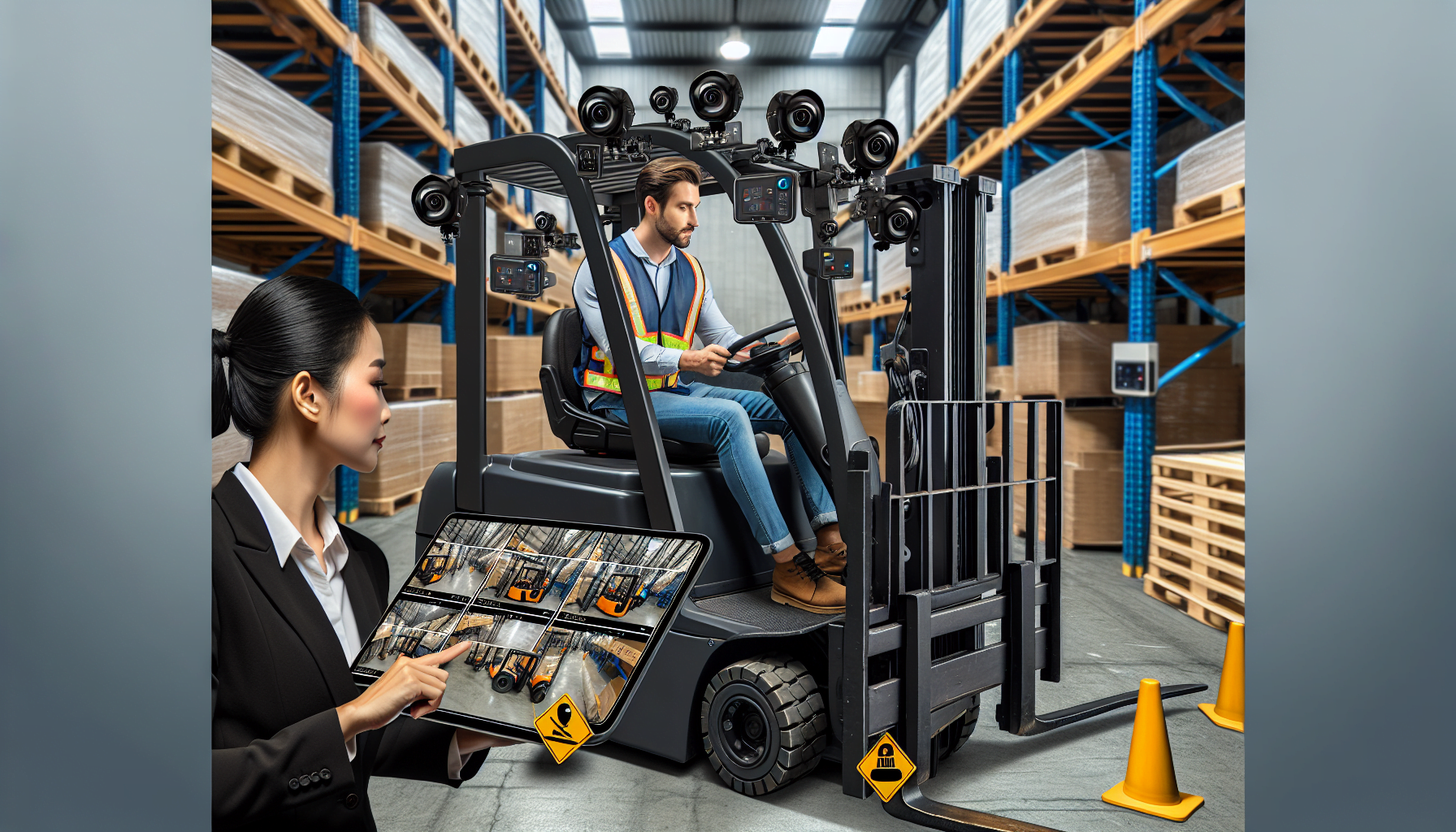Warehouse safety is of utmost importance for any organization, and finding ways to enhance safety measures is crucial. In modern warehouses, forklifts play a significant role in the movement and transportation of goods. However, operating a forklift can sometimes be challenging, especially when it comes to maintaining visibility and avoiding potential accidents. This is where forklift cameras come into play.
The Importance of Forklift Cameras
Forklift cameras have revolutionized warehouse operations by providing operators with enhanced visibility and improving overall safety. These cameras are strategically placed on forklifts to provide real-time footage of the surroundings, giving operators a clear view of blind spots and potential hazards.
One of the main advantages of using forklift cameras is the prevention of accidents. These cameras offer a 360-degree view, enabling operators to see objects, people, or obstacles that may be out of their direct line of sight. This increased visibility significantly reduces the chances of collisions and accidents, ultimately saving lives and preventing damage to goods and infrastructure.
Moreover, forklift cameras also contribute to improved productivity and efficiency within the warehouse. With clear visibility, operators can navigate through tight spaces, stack pallets accurately, and maneuver the forklift with ease. This leads to faster and more efficient warehouse operations, ultimately saving time and reducing costs.
Warehouse managers can also benefit greatly from forklift cameras. By having access to real-time footage, they can identify any areas of concern or potential bottlenecks in the warehouse layout. This insight allows managers to make informed decisions regarding the optimization of warehouse traffic flow and the implementation of safety protocols.
Choosing the Right Forklift Camera
When it comes to selecting the right forklift camera for your warehouse, there are several factors to consider:
- Camera Resolution: Look for cameras with high-resolution capabilities to ensure clear and detailed footage.
- Night Vision: If your warehouse operates during nighttime or in low-light conditions, opt for cameras with night vision capabilities.
- Weather Resistance: Ensure that the camera is designed to withstand various weather conditions, including extreme temperatures and moisture.
- Wireless Connectivity: Consider cameras that offer wireless connectivity to easily transmit footage to a central monitoring system.
- Installation and Compatibility: Verify that the camera is compatible with your forklift model and easy to install.
At HCO Innovations, we understand the importance of warehouse safety and offer a wide range of forklift cameras that meet stringent safety standards. Our cameras are designed to provide clear visibility, enhance productivity, and optimize overall warehouse operations. By incorporating our forklift cameras into your safety strategy, you can ensure a safer and more efficient working environment.
If you are interested in enhancing warehouse safety and would like to learn more about our forklift cameras and other warehouse optimization solutions, contact us today for a comprehensive warehouse safety evaluation.

